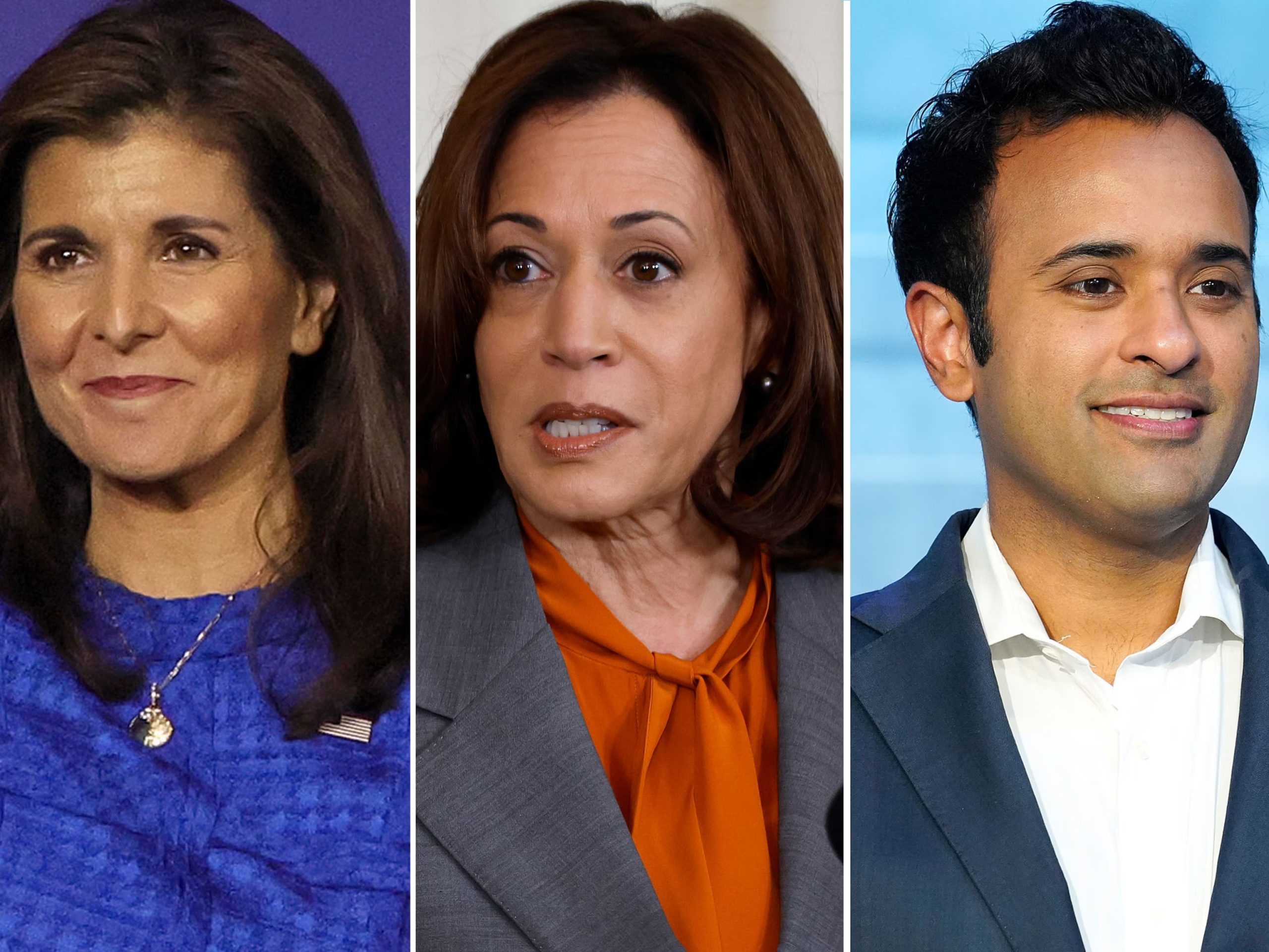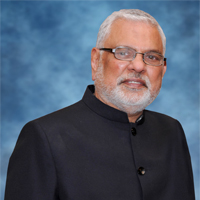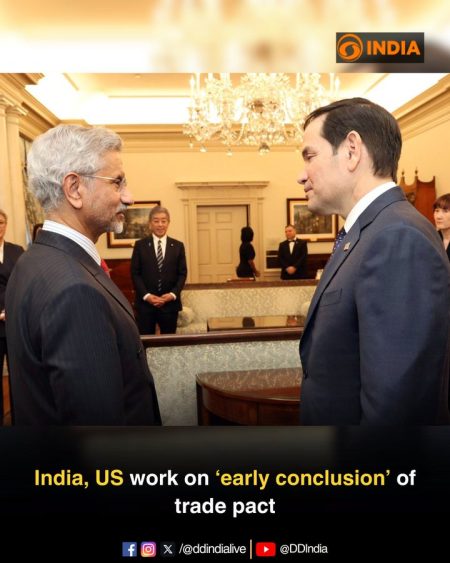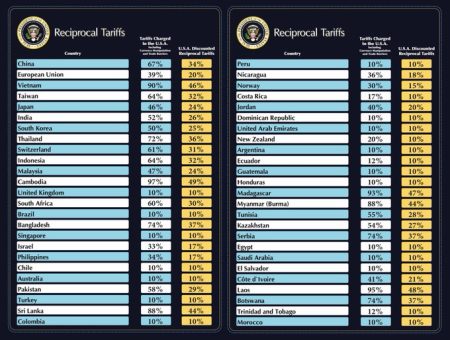By Raj Shah

Photo: X.com
The Indian-American community, a rapidly growing and increasingly influential demographic in the United States, has long been characterized by its strong commitment to education, family values, entrepreneurship, and economic success. These are principles that, in many ways, align closely with the core ideology of the Republican Party. However, despite this apparent ideological alignment, a substantial majority of Indian-Americans continue to support the Democratic Party. This paradox raises a key question: Why do so many Indian-Americans, who seem to embody many conservative values, vote predominantly Democratic?
To understand this phenomenon, we must first look into the ideological foundations of both the Republican and Democratic parties, examining how these compare to the values and interests of Indian-Americans.
Additionally, it is crucial to explore the historical and sociopolitical context that has shaped the voting patterns of this community over time.
Indian-American Conservative Values and Alignment with the Republican Party
Many Indian- Americans, particularly those who immigrated from India in the late 20th century, are inherently conservative in their social values. These values include a strong emphasis on family structure, personal responsibility, education, and entrepreneurship. The traditional Hindu philosophy of Dharma, which stresses duty, family, and societal roles, shares significant overlap with conservative principles often supported by the Republican Party.
Social and family conservatism
Indian-Americans, as a community, tend to hold family values in high regard. Multigenerational households, respect for elders, and the preservation of cultural traditions are central tenets of their way of life. This focus on family structure and the importance of community often resonates with the Republican Party’s emphasis on family values and traditional social structures.
Additionally, Indian culture generally promotes self-reliance, entrepreneurship, and hard work—principles that align closely with the Republican ethos of free markets and limited government intervention. Many Indian-Americans have succeeded in building small businesses and contributing significantly to the US economy, which is another factor that traditionally resonates with Republican economic policies focused on deregulation and tax cuts for businesses.
Entrepreneurship and Economic Success
Indian-Americans have become one of the most successful ethnic groups in the United States, excelling in fields such as technology, healthcare, and business. The emphasis on educational attainment and economic self-sufficiency is a defining characteristic of this community. The Republican Party’s pro-business stance, support for low taxes, and focus on fostering entrepreneurial spirit would seemingly be a natural fit for Indian-American voters.
In addition to professional success, many Indian-Americans have embraced the capitalist ideals of self-made wealth and individual achievement. Their upward mobility, often achieved through hard work and perseverance, mirrors the Republican Party’s advocacy for personal responsibility, individualism, and the belief that government should not overly intervene in the economy.
Immigration Policy in the U.S.
Immigration remains a pivotal issue in U.S. politics, particularly for Indian Americans, many of whom have entered the country through legal channels. The majority of Indian immigrants have followed stringent procedures, whether through family reunification or the H-1B visa program, which grants work permits to highly skilled professionals, predominantly in technology and healthcare sectors.
Indian Americans tend to favor merit-based immigration, a principle that aligns more with the policies advocated by the Republican Party. The GOP promotes an immigration system focused on skilled labor, emphasizing the need to attract talent through merit rather than a lottery-based system. The H-1B visa, which is critical for many Indian professionals, has become a central part of this policy. Indian Americans, who have significantly contributed to the U.S. economy, appreciate the Republican stance on promoting legal immigration and improving pathways for skilled workers.
On the other hand, the Democratic Party often faces criticism for not taking a firmer stance on illegal immigration. Many feel that their policies appear more lenient on border control, creating concerns over the potential strain on resources and public services. Indian Americans, who went through the legal immigration process, sometimes view this as unfair.
While the Democratic Party supposedly champions diversity and inclusivity, Indian Americans, especially those in professional fields, find common ground with Republican calls for stricter, merit-based immigration policies that recognize and reward the skills they bring to the U.S.
Unemployment and welfare benefits
Indian-Americans, one of the most successful immigrant groups in the U.S., often refrain from utilizing unemployment and welfare benefits, despite being eligible for them. Deeply ingrained cultural values such as self-reliance, hard work, and education lead many Indian-Americans to prioritize personal responsibility over seeking government assistance. This ethos aligns with the conservative belief in limited government intervention, a stance commonly upheld by the Republican Party.
Many Indian-Americans come from backgrounds where economic security is hard-earned, making the notion of relying on public welfare less appealing. Instead, they focus on entrepreneurship, higher education, and career advancement. Additionally, social stigma surrounding welfare use in certain segments of the community further discourages participation in these programs.
While the community’s reluctance may reflect cultural pride, it also highlights the disconnect between immigrant communities and the broader debates on welfare policies, which remain contentious in U.S. politics, particularly among Republicans.
Indian-Americans Leadership in the Republican Party
Indian-Americans have made remarkable strides in American politics, with notable figures like Nikki Haley and Vivek Ramaswamy rising to prominence, particularly within the Republican Party. This trend raises an intriguing question: why have Indian-Americans reached higher leadership positions in the GOP compared to the Democratic Party, despite the latter’s broader appeal to minority communities?
The Republican Party, especially in recent years, has sought to diversify its leadership to better reflect the nation’s evolving demographics. Figures like Haley and Ramaswamy represent a new face of the party, blending conservative values with the immigrant success story. Haley, a former Governor of South Carolina and U.N. Ambassador, and Ramaswamy, a successful entrepreneur and GOP presidential candidate, embody principles that resonate with many first-generation Indian-Americans—economic conservatism, meritocracy, and a focus on entrepreneurship.
Moreover, the Republican platform’s emphasis on family values and economic opportunity aligns with the cultural ethos of many Indian-American communities. For individuals like Haley and Ramaswamy, the GOP provides a space where their views on economic policy, education, and national security intersect with personal values rooted in discipline and self-reliance.
Kamala Harris’s rise to becoming a Democratic presidential candidate is a testament to her multifaceted identity, yet her Indian heritage played a less central role in her political ascent. Born to an Indian, Hindu mother and Jamaican, Christian father, Harris grew up in a predominantly black neighborhood in Oakland, California, where her African-American roots were more visible in her public persona. She also grew up attending services at a Black Baptist church. Her political career, from District Attorney to U.S. Senator, largely resonated with African-American communities, whose struggles she directly championed.
Though Harris acknowledges her Indian heritage, frequently sharing fond memories of her Tamil-speaking mother and visits to Chennai, it has not been a significant driving force in her political narrative. Her identity as a Black woman became the focal point in her presidential and vice presidential campaigns.
The Trump Effect
In the 2020 U.S. presidential election, an intriguing shift occurred within the Indian-American community: more of them voted for President Trump compared to 2016. While Trump’s presidency was marked by controversy on many fronts, his relationship with India and its Prime Minister, Narendra Modi, stood out as a significant factor in attracting Indian-American voters.
Major events like the “Howdy Modi” rally in Houston, which drew over 50,000 Indian-Americans, symbolized Trump’s warm relationship with Modi. The event underscored the camaraderie between the two leaders, highlighting their shared interests in boosting U.S.-India relations. Trump’s subsequent visit to India, where he received a grand welcome from Modi and the Indian public, further solidified his pro-India stance. This connection played a role in winning over a portion of the Indian-American community, who viewed Trump as more attuned to India’s needs than Kamala Harris, despite her Indian heritage.
Harris, as Vice President, has a complex identity with ties to India, yet many Indian-Americans feel that Trump’s direct engagement with Modi and his emphasis on strengthening U.S.-India relations outweighed Harris’s cultural connections. Trump’s emphasis on trade and defense ties with India resonated with voters who prioritize U.S.-India relations.
While his controversial policies were divisive, his outreach to India undeniably won him favor among segments of the Indian-American community, contributing to his increased support in the 2020 election.

Raj Shah
Editor-in-Chief









